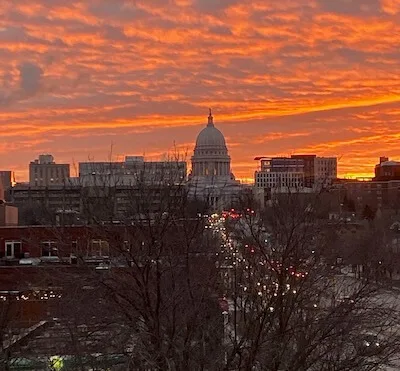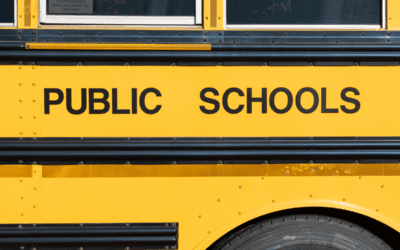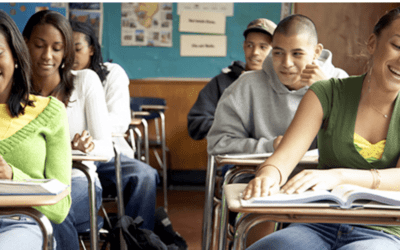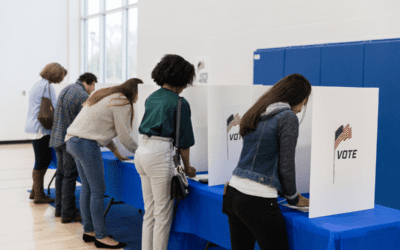
#image_title
The irresistible force of a long to-do list meets the immovable object of a short calendar
The old song lyric, “We’ve got a long way to go, and a short time to get there,” could describe the challenge facing any lawmakers with an ambitious to-do list, given the handful of days provided by Republican leadership to do any business in 2020.
The 2019-2020 calendar, as drawn up by Republican Assembly Speaker Robin Vos and Senate Republican Leader Scott Fitzgerald, already called for most matters to be wrapped up with a final general business floor session on March 26. But some legislators indicate Vos and Fitzgerald may even decide by late February to end the session and send members home for the rest of the year.
Legislators may try to expedite action on a variety of topics in that handful of days. In alphabetical order, here are many of the subjects that could be acted upon or are playing a role in legislative maneuvering.
Adoption
One bill would end the requirement that birth parents appear before a judge to confirm they understand the permanence of giving up their parental rights when agreeing to put a child up for adoption.
Cabinet Confirmations
State Senators have taken little heat for delaying confirmation votes for most of Gov. Evers’ nominees for his cabinet. As a result, each secretary-designate performs their duties as if confirmed, but always with a mythical sword hanging overhead. A Senate vote to not confirm is the equivalent of being fired by members of the governor’s opposing party. That level of hardball politics had never been recorded as happening in Wisconsin until Brad Pfaff rankled Senate Republicans last year, and senators returned serve by holding a rejection vote in November. Entering 2020, the governor still has about a dozen department heads awaiting confirmation.
CAFO Factory Farm Restrictions
This is one of the subjects that escalated tension between Pfaff and Republicans. As Secretary-designate of the Department of Agriculture, Trade & Consumer Protection, Pfaff was part of a process that drafted tougher new rules on factory farms known as CAFO’s (Concentrated Animal Feeding Operations). There would have been new restrictions on manure storage and livestock pens to keep them — and their odors — farther from property lines with neighbors. Legislative Republicans expressed opposition, and a re-start of the rule making process could put off any new restrictions for more than two years.
Climate Crisis
Gov. Evers created a Climate Change Task Force in 2019 to study ways to increase the amount of carbon-free electricity generated and used in Wisconsin. The group will also examine options for helping Wisconsin communities deal with climate change effects and foster innovation in renewable energy industries. The group is scheduled to make its recommendations public in August.
Dark Store Loophole
Despite bipartisan support for reform, legislative leaders did not advance any measure in 2019 to fix the way active business properties can currently be assessed based on comparable buildings that are vacant (“dark”). Reform backers say that when active businesses are assessed at a lower value, property homeowners must make up the shortfall in property taxes.
Elections
Scott Fitzgerald is not only the Majority Leader of the State Senate, he’s also the leading Republican candidate to succeed Jim Sensenbrenner who is retiring after more than 40 years representing the 5th Congressional District.
There will be a special election in May in the 7th Congressional District to choose who succeeds Sean Duffy who abruptly retired last fall and now works for a lobbying firm in the financial services industry.
And in April there will be two closely watched contests: the Democratic presidential primary and a state Supreme Court election to determine if conservative Justice Dan Kelly holds his seat or loses it to one of two progressive challengers.
Foxconn
Gov. Evers talks about seeking a win-win for the company that balances accountability for taxpayers, while some of the governor’s critics are framing the dispute over tax credits as an all-or-nothing dispute. And critics of the multi-billion dollar deal are skeptical of a company that has already made multiple changes to its plans for the Racine County site.
Gun Safety
Democratic lawmakers and Gov. Evers will continue to press for measures such as universal background checks for firearms purchases and “red flag” laws that would remove weapons from people deemed by a court as posing a threat to others. Such laws continue to enjoy overwhelming public support, but Republican leadership responded to Gov. Evers’ call for a special session by gaveling the session in and out in less than a minute.
Immigration
National issues surrounding immigration may be handled in Washington, D.C., but there are state-based issues that legislators can also tackle. In 2019, Republicans stripped away Gov. Evers’ budget proposal to create identification cards that would have allowed undocumented immigrants to legally drive on Wisconsin roads. In 2020, Republicans may target immigrants further by considering a crackdown on communities that seek to limit the extent to which federal authorities pursue immigrants who are not connected to any crimes. So-called “sanctuary cities” could be fined daily under the bill.
Lame Duck Lawsuits
A little more than a year ago, a defeated and outgoing Gov. Walker signed bills passed in a “lame duck” session of the legislature that reduced certain powers that otherwise would have been shared with the man who unseated him, Tony Evers. Other lame duck laws were aimed at incoming Attorney General Josh Kaul. Lawsuits in state and federal court followed with at least one major case still pending. Taxpayers have been billed more than $2 million because of the changes and the challenges to them.
Lincoln Hills
Legislative Republicans and Gov. Evers are still battling over how to close the long-troubled Lincoln Hills youth prison, and the governor now says a 2021 deadline is in danger of passing without a final plan in place. GOP lawmakers have approved more than half of the estimated funding required, but have shown no indication to make up the $127 million shortfall that remains.
Marijuana
Long lines at newly-legal dispensaries in Illinois have both Republicans and Democrats in Wisconsin noting how the Badger State is missing out on revenue that would come from decriminalizing marijuana to some degree. The bi-partisan backing would have to get even stronger to convince one of the Legislature’s most vocal critics of legal pot, Senate Republican Leader Scott Fitzgerald.
Medicaid Expansion
The centerpiece of Gov. Evers budget proposal was an expansion of Medicaid that would have covered an estimated (80,000) additional Wisconsinites, with federal funds covering 90 percent of the cost. Republicans removed the proposal, Assembly Speaker Robin Vos using the word “welfare” to describe Medicaid which currently provides health care security to more than one-million people in Wisconsin. Instead, Vos and other Republicans imposed a work requirement that was supposed to take effect last year over Gov. Evers’ objections. It is currently delayed until at least February as other states’ work mandates face ongoing legal challenges.
Minimum Wage
Wisconsin’s minimum wage has not moved off $7.25 an hour since 2009, even as nearly half the states have recently passed wage increases. Gov. Evers proposed raising it to $10.50 by 2023, but that language was stripped from the state budget blueprint by Republicans.
Opioids
A new package of bills designed to continue Wisconsin’s incremental progress at combating the opioid epidemic may be passed in the short legislative session. One measure would have the state create a registry of Medicaid-approved recovery residences. Another ensures state employees won’t be penalized for seeking both medication therapy and behavioral therapy. Yet another is liable to be the next battle between Gov. Evers — who wants the state to accept federal funding to expand Medicaid — and Republicans who rejected his request to include it in the new state budget. It would hike the Medicaid reimbursement rate for certain treatment practices and was included in the final GOP budget bill. Gov. Evers vetoed the provision, saying state dollars should be used first for expanding the number of people who can receive health care rather than increasing the amount of state Medicaid dollars going to providers.
Rape Kit Reform
After a years-long process to eliminate a backlog of more than 5,000 untested rape kits, attention is turning toward measures to prevent a future crisis. But a bipartisan bill that has passed the Senate is being held up in the Assembly. Introduced last April, the bill creates a process for future testing of many rape kits within 72 hours, and standarizing the way untested kits are stored. But the bill has yet to receive a hearing in the Assembly. The committee chair, Rep. Joe Sanfelippo, R-New Berlin, has said little about the delay but provides assurance the bill will move forward.
Redistricting Reform
Democrats are expected to try again to seek legislation or a constitutional referendum to take lawmakers out of the process of redrawing political maps for legislature and Congress. Supporters say the current maps are wildly gerrymandered and point to a Legislature that is overwhelmingly Republican despite Democratic statewide candidates winning the majority of votes in 2018. Republicans counter that the line- making should stay in the hands of elected officials.
Suicide Prevention
Stories in 2019 about school shootings and farmer suicides have prompted proposals to increase state funding for mental health services under Medicaid and other programs. While the measures face no significant opposition, supporters of Gov. Evers note such funding would have been made available from the federal government if Republicans had expanded Medicaid. Wisconsin is one of 14 states that have yet to fully accept that element of the Affordable Care Act.
UW System
Passage of the new state budget did not end the financial interaction between the University of Wisconsin System and the legislature. Republican leadership put themselves in charge of future spending decisions. While the budget approves spending $45 million over the two-year period, the UW money only went as far as the Legislature’s own Joint Finance Committee. The UW System has to give the committee a proposal for how it would like to spend the money they were allocated, and the committee can respond affirmatively or approve lesser amounts.
Originally, the UW and Gov. Evers sought $150 million which would include offsetting another tuition freeze. Upon receiving less than half, System President Ray Cross said, “I feel like I’ve been kicked in the shins. We didn’t even get inflation in this request.” Cross later announced his retirement. The Board of Regents came under sharp criticism after forming a search committee for Cross’s successor that did not include faculty, staff or more than one student.
Water Issues
While Gov. Evers declared 2019 as the “Year of Clean Drinking Water” and Republican Assembly Speaker Robin Vos formed a Clean Water Task Force, the year came and went with political rhetoric running hot and cold. For example, Republican legislators removed the governor’s $40 million request to replace lead pipes, and reduced funding for lake and river protection grants. But the budget also increased funding for other clean water programs, including added positions to inspect factory farms. Legislators will soon receive task force proposals that could range from short-term mitigation to long-term prevention of future contamination.
Support Our Cause
Thank you for taking the time to read our work. Before you go, we hope you'll consider supporting our values-driven journalism, which has always strived to make clear what's really at stake for Wisconsinites and our future.
Since day one, our goal here at UpNorthNews has always been to empower people across the state with fact-based news and information. We believe that when people are armed with knowledge about what's happening in their local, state, and federal governments—including who is working on their behalf and who is actively trying to block efforts aimed at improving the daily lives of Wisconsin families—they will be inspired to become civically engaged.


Opinion: Many to thank in fair maps victory for Wisconsinites
On February 19, 2024, Governor Tony Evers signed into law new and fair state legislative maps, bringing hope for an end to over a decade of...

Opinion: Empowering educators: A call for negotiation rights in Wisconsin
This week marks “Public Schools Week,” highlighting the dedication of teachers, paras, custodians, secretaries and others who collaborate with...

Op-ed: Trump’s journey from hosting The Apprentice to being the biggest loser
Leading up to the 2016 election, Donald Trump crafted an image of himself as a successful businessman and a winner. But in reality, Trump has a long...

Not just abortion: IVF ruling next phase in the right’s war on reproductive freedom
Nearly two years after the US Supreme Court overturned Roe v. Wade, another court is using that ruling to go after one of the anti-abortion right’s...





